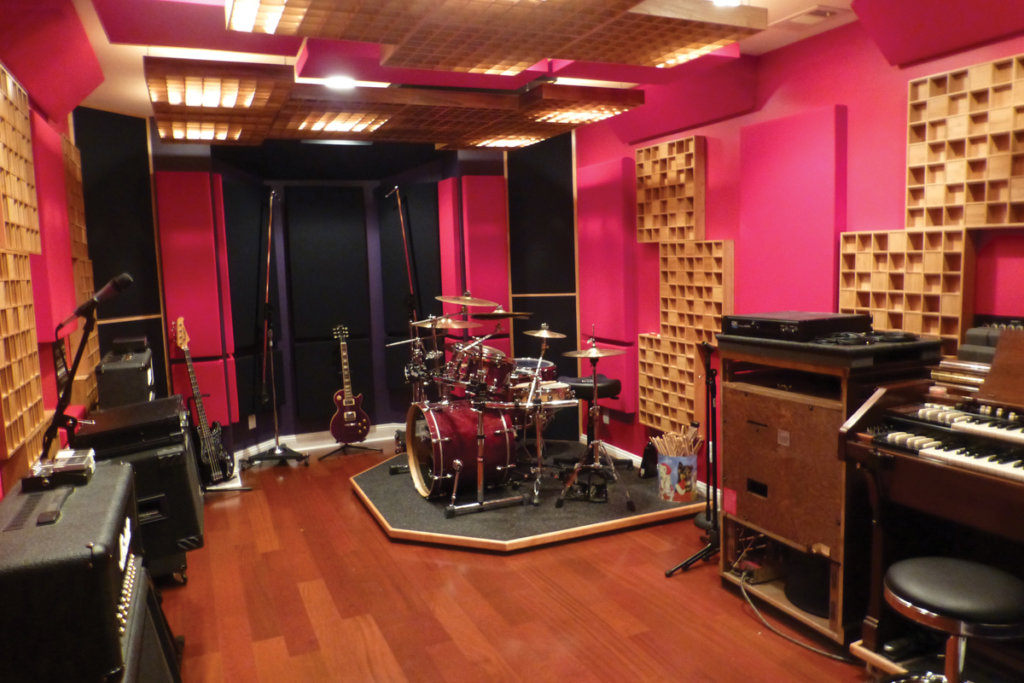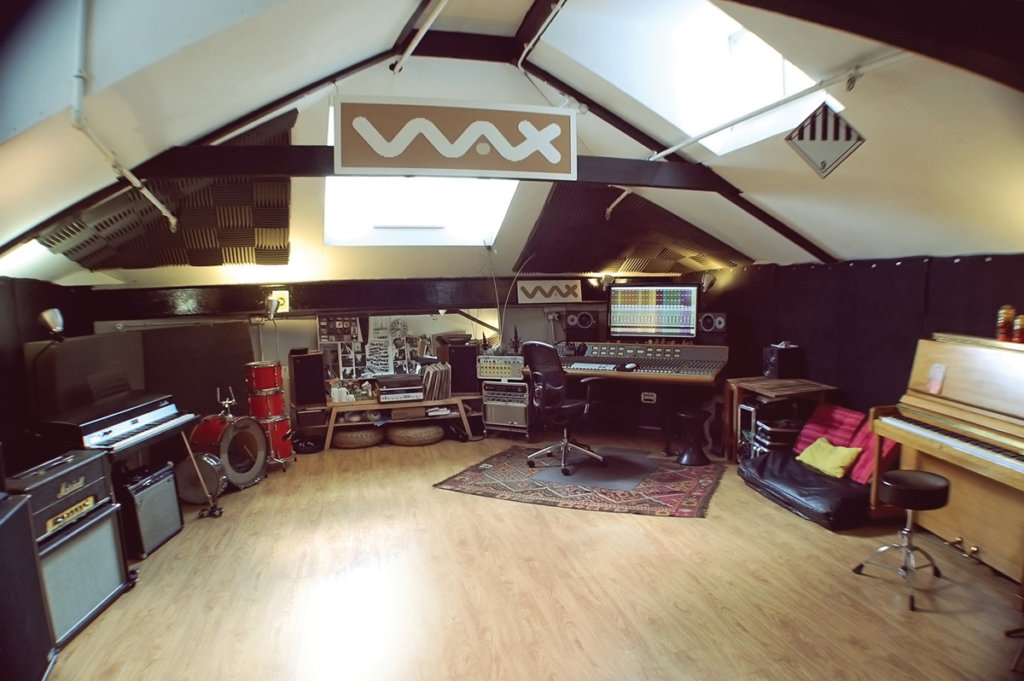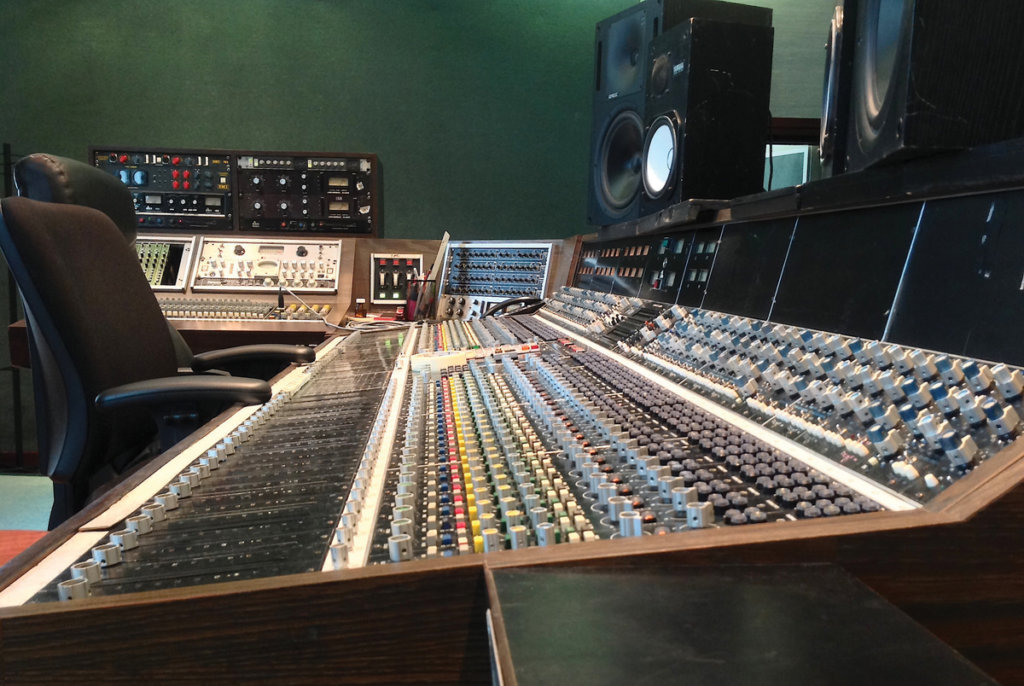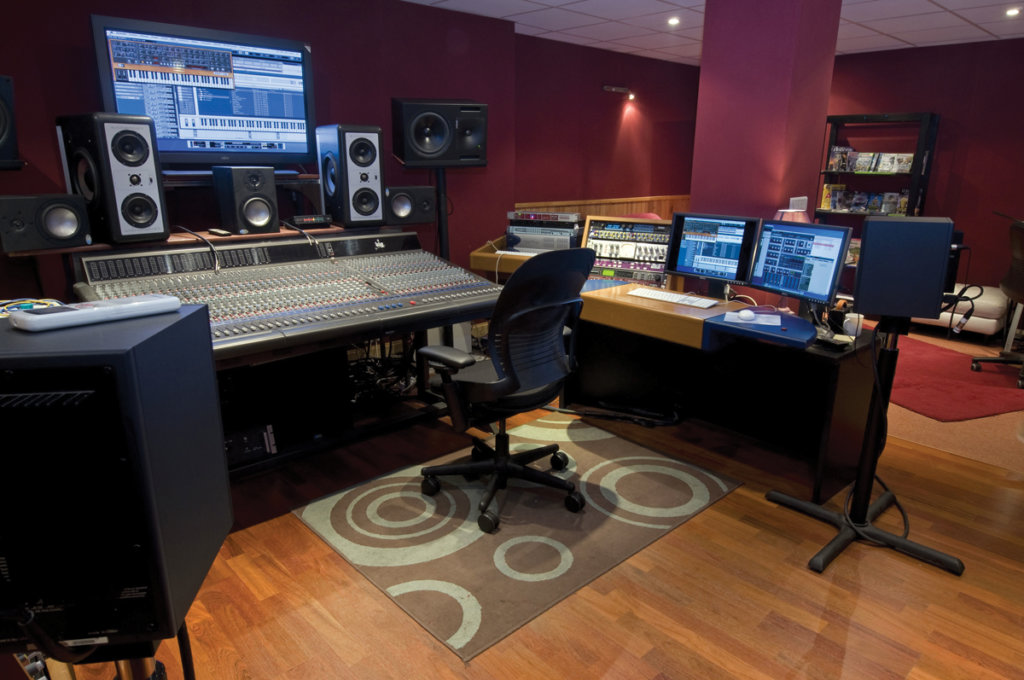How To Run A Pro Studio – Part Two
Rob Boffard continues his feature on making money out of your recording gear and setting up your pro studio… Soundgasm Studio – Read more about this studio here Let’s talk about equipment first. It’s very tempting to go out and blow your life savings on audio gear, assuming that it will be useful at some […]

Rob Boffard continues his feature on making money out of your recording gear and setting up your pro studio…

Soundgasm Studio – Read more about this studio here
Let’s talk about equipment first. It’s very tempting to go out and blow your life savings on audio gear, assuming that it will be useful at some unspecified point in the future.
The reality is that while gear is important, in many cases it’s secondary to the space you’re going to work in. You could have the best monitor speakers in the world, but if your room is terrible, your mixes will be too. One of the first things you should do before you strike out freelance is to make sure you have the space that is either already acoustically proofed or can be acoustically proofed. Once you’ve done that, you can begin investing in some audio equipment.
To be perfectly honest, you don’t have to shell out for expensive pieces of outboard gear at first. While these things are certainly good to have, you can do so much with just a laptop, an interface, a good pair of headphones and two monitor speakers that you shouldn’t worry about breaking the bank.
Obviously, if you have the money to invest in equipment, then do so by all means, but if you’re on a budget, then that money is best spent getting your space ready. Your ears will thank you, we promise.
And while you’re at it… make sure you pick a space that you feel comfortable working in. Think about every task you’re going to be doing there. Do you have a room that will be used solely for mixing and making music? Will you be doing admin tasks in there as well? Will you be receiving clients in this room, or do you have a separate space? Remember, this is a room you’re going to spend an awful lot of time in, so it’s definitely worth making sure that you actually like being there in the first place.

Wax Studio – Click here to read more about this studio
Nuts and Bolts
We’re going to assume that you have the mixing and production skills to survive in this industry – and if you don’t, there are plenty of other articles in this magazine that will help you get there.
We’re afraid that now we have to talk about something boring: paying taxes and finding clients. We’ll do our best to make it as pain-free as possible.
You’ll need to tell HMRC that you’re self-employed. This is as simple as heading to their website and registering, although you’ll need to provide the P45 slip your employer gave you when you left your last job (don’t worry if you don’t have one!). Once that’s done, you’ll be expected to pay income tax and National Insurance on an annual basis. You can either do this yourself, using HMRC’s website, or you can get an accountant to do it for you (most will charge between £150 and £300).
There are a couple of tips and tricks help you get the most out of tax – although they come with the warning that we are not tax professionals, and we take absolutely zero responsibility for anything to do with your finances! Now that that’s out of the way, check this out: you can write expenses off to tax, meaning that when your final tax bill is calculated, you can deduct them, and end up paying less tax overall.
That means if you invest in that kick-ass new Novation synth you’ve been eyeing up, then you’re quite entitled to deduct it from your tax as a business expense. You need to be quite careful with what you do this with – you’re not going to be able to write off takeaway kebabs, for example – but any expense that is essential to running your business is fair game, and that can include utility bills as well.
Also: remember that there’s a tax threshold. In 2015, the UK tax threshold is £10,000 – what’s known as your personal allowance – which means you will only pay tax once you cross that particular threshold.
Now let’s talk about clients. As in: how you get them, and how you retain them. The first one is the tricky one, especially if you’re just starting off your career. A lot of it will come down to networking and word of mouth, and you can do yourself a huge favour by attending industry events, asking questions, and being open and friendly to absolutely everyone you meet, from receptionists to label managers. But you also need to show a good body of work, and that can sometimes be tricky, particularly if you’re an engineer who doesn’t produce.
The sad reality is that you may need to work for free, at first, simply to build up a reel. You should be absolutely clear with yourself at the start regarding how long you’re going to do this for. After all, you’ve got skills, you know what you’re doing, and you should be being paid for your work. But there’s nothing wrong with helping mix or produce a band’s album for a credit if you’re just starting out.
Retaining clients is a lot easier. As long as you do exactly what you say you will, on time and on budget, then you’ll keep getting used. Clients are going to be demanding and forgetful and sometimes stupid, and you have to take that in your stride. This is the kind of thing, fortunately, that becomes second nature after a year or two in the business. By then, hopefully, you’ll have a long list of satisfied clients, and have a fully booked week, every week.
None of this is easy. Whether you’re holding down a job in a professional studio, running your own one, or simply being a freelance gun for hire, there are going to be times when it’s incredibly tough. As long as you’re having fun, and as long as you’re getting to do what you love, then it’s all worth it. Trust us.

The main desk at RAK Studios – aka: ‘The Best Studio In The UK’ has been home to an impressive roster of artists including Mary J Blige, Jessie J, Paul McCartney and Primal Scream
Pro Tips
Be on time. We can’t stress this enough. Musicians are sensitive enough without a studio’s engineering staff not bothering to turn up. And by on time, we mean arriving a good deal of time before the musicians show. When they arrive, the studio should be as ready as it can be. This is a rule that applies absolutely everywhere on the totem pole of studio jobs, because nothing will irritate a client more than an engineer or a runner with poor timekeeping.
This applies more to lead engineers than other jobs, but you need to be able to keep control of a session. When you’re behind a desk, you should never be flustered, never at a loss. You should be calm, confident and controlled. Recording sessions are complicated, and screw-ups happen. You will not make things easier by screaming at people, particularly if people, rather than equipment, are the source of the problem. Hip-hop producer and engineer Dr Dre was notorious for simply leaving if the musicians weren’t behaving. The message was clear: we’re here to work.
It’s become more and more common for engineers to have their own manager, or management team. If you’re good, and highly in-demand, then simply keeping up with the business of dealing with work requests can become insurmountable. A manager will help bring in work, deal with clients and handle payments. Just remember that they don’t come for free – they’ll take a cut of your fees. You should also be sure to hire someone you trust, as the music industry is full of stories of dodgy managers. If this is a route you choose to take, you’d better be damn sure you can depend on whoever you pick.
There are plenty of other jobs in studios besides engineering or producing. Many studios, particularly big ones, have their own workshops where they can repair and customise kit. If you’re a dab hand with electronics, there’s nothing to stop you from trying to find a role there. And as we’ve mentioned, all studios need their human infrastructure – PR, HR, payroll, office manager. What we’re saying is: if you’re trying to get in on the action, make sure you use your existing skills and qualifications, and consider every option.
Own your own studio? Keep it clean. This applies even if you aren’t receiving clients. Unless you’re a dedicated creative who absolutely has to work in a messy environment, then you’ll find that your mind gets just as messy as the space. A single cleaning session once a day where you clean out the old coffee cups and takeaway boxes will make a real difference to your work. We know this sounds obvious, and even a bit maternal, but if you get into the habit of doing it, you will thank us.
There’s nothing that says you have to strike out on your own. If you can find another engineer or producer willing to go in with you, you’ll find that you’re able to split the cost quite happily. You don’t even have to have the same business; you could just agree to share the same space, and both contribute to the costs. One thing though: make sure you get the terms of your relationship down in writing, including what will happen if things go sour.
Do this no matter how good a friend this person is.

Big Wheels Studio – Click Here to read more about this gorgeous studio
It’s worth investing in infrastructure. By this, we mean a solid internet connection, extra hard drives (possibly a cloud drive) and a secure FTP server to send and download large files. Often these things can be achieved with a minimal amount of hassle, and at very low cost. Something like WeTransfer offers a solid budget option for transferring files, and if you’re a paid customer, you can customise it to your heart’s content. And don’t forget to pay attention to things like your website, branding and logo – and getting professionals to handle all of the above when necessary.
Owning your own studio as a freelance engineer and producer is exactly the same as going freelance in any other field. And the big piece of advice that gets given to anybody going freelance is this: emergency funding. Make sure you’ve got enough to cover your expenses – and that’s all your expenses, from rent to car to electricity to business expenses – for at least three months before you start. Even for the most well-connected people, going solo can be hard, simply because it can take time to get paid. This is a fantastic thing to do for a living, but it’s not worth starving for.
Your hours are going to be long. Whether you’re a full-time employee or solo freelancer, you’re going to have weekends, evenings, and even early mornings where you’re chained to the mixing desk. That’s the reality of the industry, which doesn’t always operate under 9-to-5 rules. Knowing this, it’s quite easy to get sucked into an unhealthy lifestyle, and that can affect the quality of your work.
Make sure you take care of yourself before anything else, and in some cases, it’s okay to say no to a piece of work that you know isn’t going to be worth it. Good luck